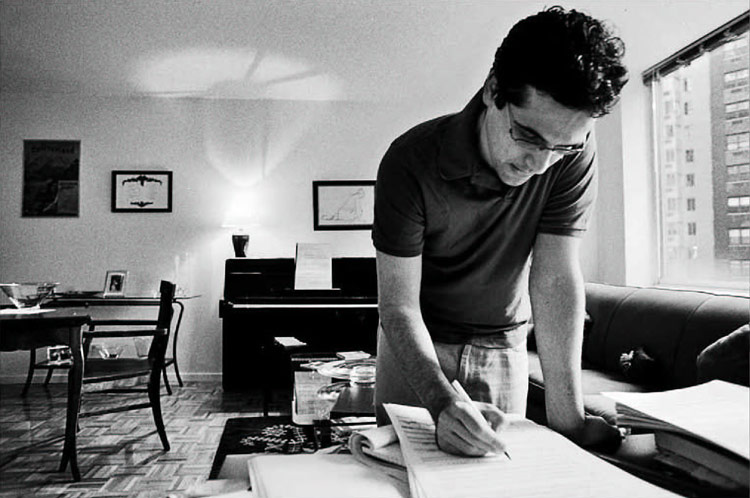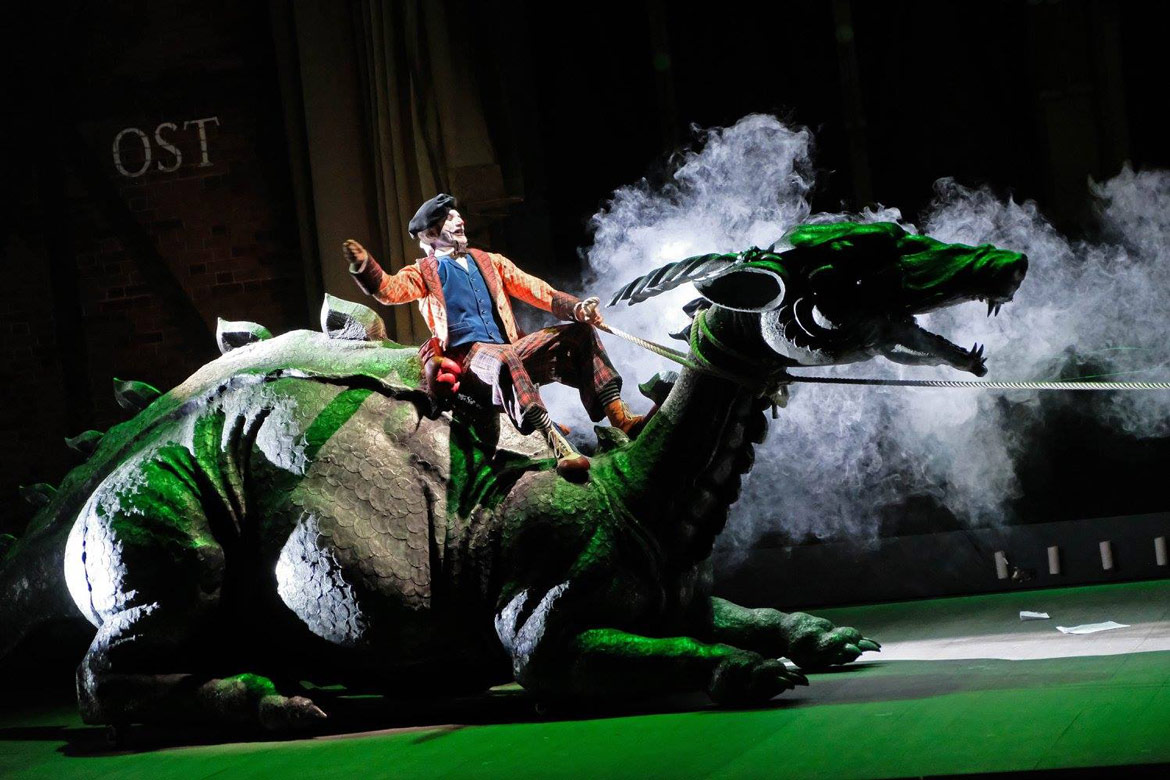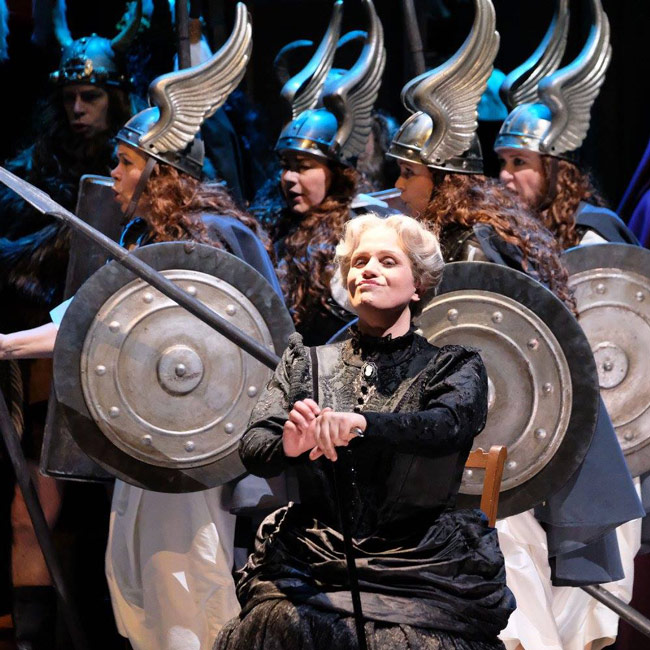
Acclaimed composer and Sunderman Conservatory of Music Prof. Avner Dorman shares insights into writing his first opera, Wahnfried, which premieres in Karlsruhe, Germany at the Badisches Staatstheater Karlsruhe on January 28.
 Since I began teaching at Gettysburg College’s Sunderman Conservatory of Music in 2010, I've been lucky enough to both teach and compose music at the same time. While there's always a challenge balancing creative work with teaching, I've found the back-and-forth keeps me on my toes: in the morning, I'll teach music theory to a class full of inquisitive students, and then in the afternoon I might work on a composition in my studio—incorporating many of those same ideas from my class into whatever piece I'm currently writing.
Since I began teaching at Gettysburg College’s Sunderman Conservatory of Music in 2010, I've been lucky enough to both teach and compose music at the same time. While there's always a challenge balancing creative work with teaching, I've found the back-and-forth keeps me on my toes: in the morning, I'll teach music theory to a class full of inquisitive students, and then in the afternoon I might work on a composition in my studio—incorporating many of those same ideas from my class into whatever piece I'm currently writing.
At no time in my career have I found this relationship to be so complex—and so fruitful—than in the past two years while I was writing my first opera, Wahnfried. While the libretto of the work is ripe for topics to discuss, my job was to bring these characters to life—and to compose more than two hours of music.
As I began writing what would become the scenes of Wahnfried, I found myself looking more deeply into various parts of music scholarship. I had never written an opera before and, in some ways, I needed to become a student of the genre in order to write such a great deal of music in a relatively short period of time. As a result, I also became a student once again of the material that I was teaching.

Wahnfried is a post-tonal piece, a topic that corresponds with our fourth-semester music theory course at the Sunderman Conservatory. While teaching these concepts to students, I too was revisiting them—delving deeper into scholarly articles and applying them to the opera. I can't overstate the benefits of working pedagogically with the same materials and ideas that make up the music in the opera. In fact, the questions that students brought up in class often reoriented my thoughts and opened my eyes to different elements of the music that I was working with.
“Writing this opera has allowed me to bring new and refreshing ideas into the classroom, and to improve as an educator.”
Due to the nature of the schedule at the opera house in Germany, I actually first composed the entire piece with only the voices, piano, and some percussion. This allowed the singers more time to learn their parts, which are memorized and put together with acting, staging, and other elements of the theatre.
From that short score, I began orchestrating each scene—transforming piano lines into fully scored orchestral music, with strings, winds, and percussion. This process forced me to grow as a composer, and I can say without a doubt that my approach to teaching Orchestration changed dramatically. My methods of orchestrating became rather streamlined and better-honed, and this past fall in Orchestration, I used new resources to present a more practical approach to the craft.
 The students ultimately wrote incredible orchestrations—working with the music of David Bowie—and they’re slated to be performed with the CityMusic Cleveland Chamber Orchestra this spring, where I also serve as music director. The ease with which our student orchestra was able to read the pieces, in addition to the full and balanced sounds of the end product, confirm that our Sunderman students are really applying the concepts they learn in class. I look forward to conducting their orchestrations in March!
The students ultimately wrote incredible orchestrations—working with the music of David Bowie—and they’re slated to be performed with the CityMusic Cleveland Chamber Orchestra this spring, where I also serve as music director. The ease with which our student orchestra was able to read the pieces, in addition to the full and balanced sounds of the end product, confirm that our Sunderman students are really applying the concepts they learn in class. I look forward to conducting their orchestrations in March!
Now that I'm hearing the final staging rehearsals before Wahnfried's premiere, its rather surreal to hear and see it all come together. I look forward to future semesters of teaching—and composing—and the fascinating intersections that occur.


